The government said today that a private company run by police chiefs should be stripped of its power to run undercover spies in the wake of a Guardian investigation into the police officer Mark Kennedy, who spent seven years posing as an environmental activist.
The Home Office minister Nick Herbert and senior police officers acknowledged for the first time that "something had gone very wrong" in the Kennedy case, which led to the collapse last week of the trial of six people accused of planning to invade a Nottinghamshire power station.
Herbert said that the Association of Chief Police Officers (Acpo), a limited company with responsibility for some sensitive national operations, is to lose control of three teams involved in tackling so-called "domestic extremism". Ministers and senior officers hope the decision may defuse the controversy surrounding revelations of long-term undercover surveillance of peaceful protest groups.
Later in the day the national policing watchdog announced the launch of an official inquiry into undercover police work carried out by Acpo. The review by Her Majesty's Inspectorate of Constabulary (HMIC) will investigate Acpo's decade-long infiltration of the protest movement, assessing whether operations have been "authorised in accordance with law" and "proportionate".
The review, which will be conducted by Bernard Hogan-Howe, a former chief constable, is now one of three formal inquiries triggered by the Guardian's investigation into Mark Kennedy and up to 15 other police spies. The Independent Police Complaints Commission (IPCC) has already announced an investigation into Nottinghamshire police over allegations it suppressed secret surveillance tapes – recorded by Kennedy – that would have exonerated six activists police tried to prosecute. And today it also emerged that the Serious and Organised Crime Agency, which has responsibility for major cover operations, has begun a simultaneous inquiry into "the conduct of Mark Kennedy".
It is the Metropolitan police that is now set to take control of the National Public Order Intelligence Unit (NPOIU), the largest of Acpo's domestic extremism units, and today its acting commissioner, Tim Godwin, said that the force would from now on examine whether operations to infiltrate allegedly dangerous groups are necessary and proportionate, and would ensure that officers like Kennedy were not left undercover too long.
Godwin said that Acpo, which owned the unit, had already identified it as needing better governance, and that negotiations were under way to bring it into the Met "so that it would come within our command and control system, which would ensure a) compliance with law, b) compliance with rules, c) compliance with ethics".
There would "undoubtedly" be a review of the code of conduct and rules for undercover officers in collaboration with bodies like HMIC. "We need to make sure that the controls are in place, that we look after them properly, that we don't over-expose them," he said.
"For that particular unit [the NPOIU] we will be looking at all these issues around necessity, proportionality, about looking after the officers themselves, making sure that we don't leave them too long if that's the case."
Meanwhile Herbert, the minister of state for police and justice, told MPs the Kennedy case demonstrated strongly that Acpo should no longer have the responsibility for national organisations such as the unit that runs covert operations gathering intelligence on protest groups in England and Wales. "The Government is strongly of the view that there needs to be proper accountability for Acpo and its successor body," he said.
"Units like this should not be operated by Acpo and they should be operated either by a lead police force or in future the National Crime Agency where there is proper governance in place."
Acpo president, Sir Hugh Orde, said that chief police officers firmly supported the government's aims. "What is vitally important is that national units have a transparent accountability framework that provides public confidence," he told the Guardian.
"As president, I have publicly committed to that reform and we hope government will provide the support necessary to secure it."
The units to be merged into a new domestic extremism command of the Met are: NPOIU, the national domestic extremism team and the national extremism tactical co-ordination unit.
It will leave Acpo with the police national information and co-ordination centre, national community tension team, and the vehicle crime intelligence service known as Truckpol. The move was first floated last November and is expected to be confirmed by the Acpo council meeting of all chief constables later this month.
The police minister told MPs he had no knowledge of the case until the Guardian disclosed that the prosecution of six activists planning to invade Ratcliffe-on-Soar power station collapsed because of Kennedy's role in it.
He refused to comment on claims by MPs that the names of the business secretary, Vince Cable, and the Green party leader, Caroline Lucas, were listed on the domestic extremism database just because they had been at peaceful protests.
The home affairs committee chairman, Keith Vaz, who said Kennedy was "no James Bond", also pressed the minister to investigate the alleged £200,000 expenses bill run up by Kennedy.
Herbert said: "In this case it is clear that something operationally has gone very wrong and that is now the subject of an IPCC investigation."
"I think everybody is concerned by the Kennedy case and we have an IPCC precisely to investigate this kind of thing. It is right that the IPCC should look into it and then we should take note of that."
Today two protesters involved in the Ratcliffe-on-Soar station case – the last of 20 found guilty of conspiracy to commit aggravated trespasss last month – were given community service orders.
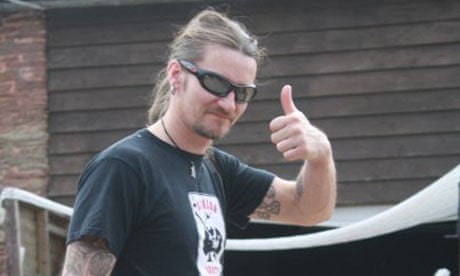
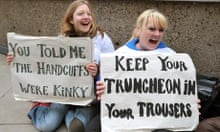
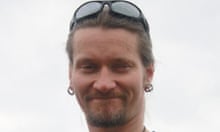
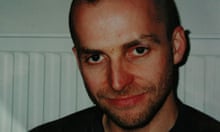


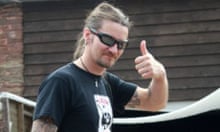

Comments (…)
Sign in or create your Guardian account to join the discussion